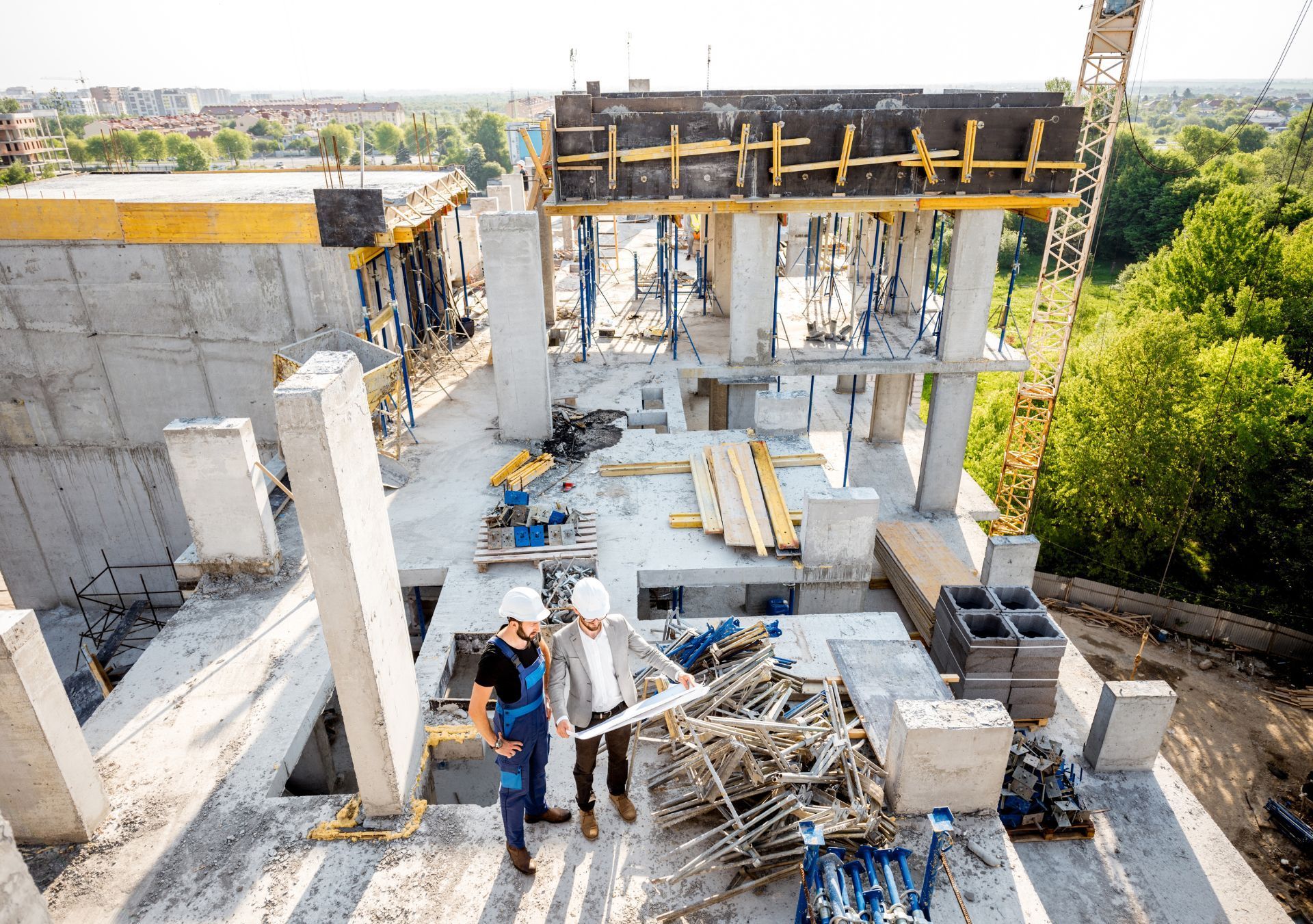
Most Common Business Policies
Index
Contact Us
In the world of construction and contracting, bid bonds play a crucial role in ensuring that projects are completed as promised. For contractors looking to secure work in Arizona, understanding bid bonds is essential. This article will provide a comprehensive overview of Arizona bid bonds, covering what they are, how they work, and their importance in the bidding process.
What is a Bid Bond?
A bid bond is a type of surety bond that provides a guarantee to the project owner that the contractor will adhere to the terms of the bid. If the contractor fails to fulfill their obligations, the bond ensures that the project owner is compensated for any losses incurred. This financial security is vital in the construction industry, where large sums of money are often at stake. Bid bonds serve as a protective measure, ensuring that only serious and capable contractors are considered for a project, thereby enhancing the overall integrity of the bidding process.
Typically, bid bonds are required for public construction projects, but they can also be requested for private contracts. The bond amount usually ranges from 5% to 10% of the total bid amount, depending on the project and the requirements set by the owner. This percentage is designed to provide a sufficient cushion for the project owner, allowing them to cover any immediate costs associated with finding a new contractor should the initial bidder default on their commitment.
How Bid Bonds Work
When a contractor submits a bid for a project, they may be required to include a bid bond. This bond is obtained from a surety company, which assesses the contractor’s financial stability and ability to complete the project. If the contractor wins the bid but fails to sign the contract or meet the terms, the surety company will pay the project owner the bond amount. This process not only protects the project owner but also encourages contractors to carefully evaluate their bids and ensure they can fulfill the project requirements before submitting.
The contractor is then responsible for repaying the surety company, which may lead to significant financial repercussions. Therefore, obtaining a bid bond is not just a formality; it reflects the contractor's commitment to the project and their financial reliability. Additionally, the presence of a bid bond can enhance a contractor's reputation, as it demonstrates to potential clients that they are a trustworthy and professional entity capable of managing large-scale projects.
Types of Bid Bonds
There are generally two types of bid bonds: single project bonds and blanket bonds. Single project bonds are specific to one project, while blanket bonds cover multiple projects for a contractor. Understanding these types can help contractors choose the right bond for their needs. For instance, a contractor who specializes in large, one-off projects may find single project bonds more beneficial, while those engaged in ongoing work across various sites might prefer blanket bonds for their flexibility.
Choosing the appropriate bond type can save time and money, especially for contractors who frequently bid on projects. It is essential to consult with a surety bond specialist to determine the best option based on individual circumstances. These specialists can provide invaluable insights into the nuances of the bonding process, including how to improve a contractor's chances of securing a bond and tips for maintaining a strong financial standing to facilitate future bonding needs. Understanding the intricacies of bid bonds can ultimately lead to more successful bidding outcomes and stronger business relationships in the construction industry.

The Importance of Bid Bonds in Arizona
Bid bonds serve several important functions in the construction industry, particularly in Arizona. They not only protect project owners but also help maintain a level playing field among contractors. Here are some key reasons why bid bonds are essential.
Protection for Project Owners
For project owners, the primary purpose of a bid bond is to provide financial protection. If a contractor fails to fulfill their obligations, the bond compensates the owner for any losses incurred. This assurance is particularly important in public projects, where taxpayer money is at stake.
By requiring bid bonds, project owners can ensure that only serious and financially stable contractors are bidding on their projects. This reduces the risk of delays and financial losses, leading to smoother project execution. Furthermore, the presence of a bid bond can act as a deterrent against frivolous bids, as contractors are more likely to submit competitive and realistic proposals when they know their financial commitment is on the line.
Enhancing Contractor Credibility
For contractors, having a bid bond can enhance their credibility in the eyes of project owners. It demonstrates that they are financially stable and committed to completing the project as promised. This can be a significant advantage in a competitive bidding environment.
Additionally, many project owners will not consider bids from contractors who do not provide a bid bond. Therefore, obtaining a bid bond can be a prerequisite for bidding on certain projects, making it essential for contractors to secure one. Beyond just meeting the minimum requirements, contractors who consistently provide bid bonds may find themselves in a stronger position to negotiate terms and secure more lucrative contracts, as their reliability is recognized and valued by project owners.
Compliance with State Regulations
In Arizona, many public projects require bid bonds as part of the bidding process. Compliance with these regulations is crucial for contractors who wish to participate in state-funded projects. Failing to provide a bid bond when required can result in disqualification from the bidding process.
Understanding the specific requirements for bid bonds in Arizona can help contractors navigate the regulatory landscape more effectively, ensuring they remain eligible for valuable projects. Moreover, with the increasing complexity of construction contracts and the evolving nature of state regulations, contractors who stay informed about changes in bid bond requirements can position themselves as industry leaders, capable of adapting to new challenges while maintaining their competitive edge.
How to Obtain a Bid Bond in Arizona
Obtaining a bid bond in Arizona involves several steps. Contractors must prepare their financial documentation, choose a surety company, and submit an application. Here’s a breakdown of the process.
Step 1: Prepare Financial Documentation
Before applying for a bid bond, contractors should gather necessary financial documents. This may include financial statements, credit reports, and information about previous projects. A strong financial profile can improve the chances of securing a bond.
Surety companies evaluate the contractor’s financial stability, experience, and overall capability to complete the project. Providing comprehensive and accurate documentation is essential for a smooth application process. Additionally, contractors might consider including letters of recommendation from previous clients or partners, as these can further bolster their credibility and demonstrate a history of successful project completions. A well-rounded application not only showcases financial health but also highlights the contractor's reliability and professionalism in the industry.
Step 2: Choose a Surety Company
Choosing the right surety company is crucial. Contractors should look for companies with a good reputation, experience in the construction industry, and a solid track record of providing bid bonds. It can be beneficial to consult with a surety bond agent who can guide contractors in selecting the best option.
Comparing rates and terms from different surety companies can also help contractors find the most favorable bond conditions. Understanding the nuances of each company’s offerings can lead to significant savings. Moreover, contractors should inquire about the claims process and customer service quality of potential surety companies, as these factors can significantly impact the overall bonding experience. A responsive surety company can make the process less stressful, especially when dealing with time-sensitive projects.
Step 3: Submit the Application
Once the financial documentation is prepared and a surety company is chosen, contractors can submit their application for a bid bond. The surety company will review the application and may request additional information or clarification.
Upon approval, the contractor will receive the bid bond, which they can then include with their bid submission. It is important to ensure that the bond is valid and meets all project requirements before submitting the bid. Additionally, contractors should be aware of the specific deadlines associated with the bid process, as missing these can jeopardize their chances of winning the contract. Keeping open lines of communication with the surety company during this stage can also help clarify any last-minute questions or concerns, ensuring that all documentation is in order and that the contractor is fully prepared to proceed with their bid submission.
Costs Associated with Bid Bonds
The cost of obtaining a bid bond can vary based on several factors, including the bond amount, the contractor's creditworthiness, and the surety company’s rates. Understanding these costs is essential for contractors budgeting for their projects.
Factors Influencing Bid Bond Costs
Several factors can influence the cost of a bid bond. A contractor with a strong financial background and good credit may pay a lower premium compared to one with a weaker financial profile. Additionally, the size and complexity of the project can also affect the bond cost. For instance, larger projects that require higher bond amounts may lead to a higher premium, as surety companies perceive them as riskier. Moreover, the type of work being performed can also play a role; specialized trades or those with a higher likelihood of default may incur additional costs.
Typically, the premium for a bid bond ranges from 1% to 3% of the total bond amount. However, contractors should be aware that rates can fluctuate based on market conditions and the specific requirements of the project owner. It's also worth noting that the surety market is competitive, and contractors may find varying rates based on the surety company's appetite for risk and their existing relationships with contractors.
Budgeting for Bid Bonds
When budgeting for a project, contractors should include the cost of bid bonds as part of their overall expenses. This will help ensure that they are financially prepared when bidding on projects. It may also be beneficial to shop around for the best rates and terms to minimize costs. Contractors should consider reaching out to multiple surety providers to compare quotes, as this can lead to significant savings over time. Additionally, maintaining a positive relationship with a surety company can provide advantages, such as quicker approvals and more favorable terms on future bonds.
In some cases, contractors may be able to negotiate better rates with surety companies, especially if they have a good track record of completing projects successfully. A history of timely project completion and financial responsibility can enhance a contractor's credibility and potentially lead to lower premiums. Furthermore, contractors should also be aware of any additional fees that may be associated with obtaining a bid bond, such as application fees or renewal costs, as these can impact the overall budget. By thoroughly understanding all aspects of bid bond costs, contractors can make informed decisions that contribute to the financial health of their projects.

Common Misconceptions About Bid Bonds
Despite their importance, there are several misconceptions about bid bonds that can lead to confusion among contractors. Addressing these misconceptions can help clarify the role of bid bonds in the construction industry.
Misconception 1: Bid Bonds Are Only for Large Projects
Many contractors believe that bid bonds are only required for large projects, but this is not the case. Bid bonds can be required for projects of all sizes, depending on the project owner’s requirements. Even smaller projects may necessitate a bid bond to ensure financial security.
Contractors should always check the specific requirements for each project they are bidding on, regardless of its size. This will help avoid any surprises during the bidding process. Additionally, project owners may use bid bonds as a way to filter out less serious bidders, ensuring that only those who are truly committed and capable of completing the work are considered. This practice can help maintain the integrity of the bidding process and foster a competitive environment, which is beneficial for both owners and contractors.
Misconception 2: Bid Bonds Are Non-Refundable
Another common misconception is that bid bonds are non-refundable. While it is true that the premium paid for the bond is not refunded, the bond itself serves as a guarantee. If the contractor fails to fulfill their obligations, the surety company will cover the losses, but the contractor will still be responsible for repaying the bond amount.
Understanding this distinction is important for contractors, as it emphasizes the need for careful planning and commitment to fulfilling contractual obligations. Moreover, contractors should also be aware that the process of obtaining a bid bond can vary based on the surety company’s evaluation of their financial stability and experience. This means that maintaining a solid financial history and a good reputation in the industry can lead to more favorable terms when securing bid bonds, ultimately benefiting the contractor in the long run.
Misconception 3: Bid Bonds Are the Same as Performance Bonds
While bid bonds and performance bonds are both types of surety bonds, they serve different purposes. A bid bond guarantees that the contractor will enter into a contract if awarded the bid, while a performance bond ensures that the contractor will complete the project according to the contract terms.
Contractors should be aware of these differences, as both bonds may be required for certain projects. Understanding the specific requirements can help contractors prepare more effectively for the bidding process. Additionally, it is essential for contractors to recognize that the requirements for performance bonds can be more stringent, often requiring a more thorough financial assessment and a proven track record of successful project completions. This highlights the importance of building a strong portfolio and maintaining good relationships with surety companies, which can ultimately ease the process of obtaining both bid and performance bonds in the future.
Conclusion
Bid bonds are an essential component of the construction bidding process in Arizona. They provide financial protection for project owners and enhance the credibility of contractors. Understanding how bid bonds work, the costs involved, and the common misconceptions can help contractors navigate the bidding landscape more effectively.
By securing a bid bond, contractors not only demonstrate their commitment to completing projects but also position themselves as reliable partners in the construction industry. As the construction market continues to grow, being informed about bid bonds will remain a vital aspect of successful bidding in Arizona.
In summary, whether you are a seasoned contractor or new to the industry, understanding Arizona bid bonds is crucial for success. With the right knowledge and preparation, contractors can confidently navigate the bidding process and secure valuable projects.
